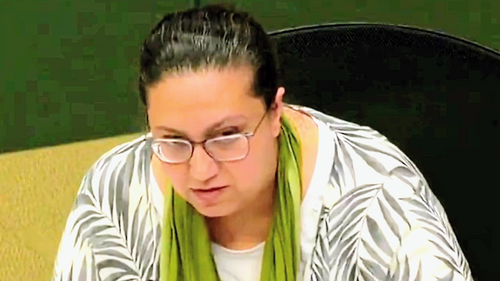Questions over the London Fire Brigade’s Culture Review lead to some shocking revelations

When a Firefighter takes a selfie from Grenfell, while the fire is still raging, and uses it as his Tinder profile, you have to question the culture that exists in the London Fire Brigade. Or as I have come to notice, that this behaviour that is so rife in society; is it no surprise that the LFB has been accused of being “institutionally racist and misogynistic”. As the author of the report, Nazir Afzal, admitted: humans are complex. So why are we so shocked to hear about the levels of awful behaviour in the LFB and the other emergency services? The Met have had their fair share of media attention especially after the tragic murder of Sarah Everard but there was a sudden intake of breath when similar stories of the poor treatment of women and ethnic minorities also began to surface in the Fire Brigade. This is mainly because of the image many have of firefighters as London’s heroes, and rightly so. The Police are enforcers of the law, but the brigade’s image has always been softer and more often to be seen to be trustworthy.
This changed after Grenfell. Trust did breakdown with the local community after the fire. The directions to “stay” in the flats while the fire spread was criticised by families who lost their loved ones. Much work has been done to mend these relationships and even though there is still much hurt there is also mutual growing respect.
But the reasons behind commissioning the Culture Review were tragic as well as brave. Jaden Francois-Esprit committed suicide in late August 2020, after a string of racist incidents committed against him. He requested to leave his watch in Wembley Station 16 times. The treatment he received resulted in his mental health deteriorating and eventually Jaden taking his life.
Instead of denial, the Commissioner Andy Roe requested an independent review of the LFB. He has admitted that there have been mistakes and at the Fire Commitee in City Hall while Jaden’s mum sat in the gallery he openly apologised to her. This is brave. And shows a real commitment to change. This does give me hope. Despite the string of offences and list of racist and misogynistic examples in the Culture Review, there is a real understanding that things have to, and will change.
I had two main concerns. Why is this happening? And what is happening now to stop this?
So I questioned the Commissioner on vetting. If the culture of the LFB is to change, surely this can only happen from the start of recruitment? What followed was a shocking revelation: to hear that vital government legislation has excluded the LFB. Unlike any other emergency service, they can only do a basic DBS check when hiring recruits. Therefore, there have been occasions on which firefighters have been sacked after criminal or otherwise serious behavioural deficiencies made them unsuitable for the brigade. It is therefore no surprise that the LFB find themselves in this challenging predicament.
I also asked about training. I was concerned by statements made by the Commissioner that firefighters had a switch on/off button, supposedly so that once they are in a situation to save lives, there was no evidence of any racism or misogyny. I pushed Nazir Afzal on this, who said there was no evidence he presented in the report, but admitted that firefighters did show unconscious bias. For example when a firefighter saw a Muslim woman wearing a nikab (face covering) they would presume they didn’t speak English. Unconscious bias training was a recommendation of mine that Afzal agreed was necessary.
And lastly, I asked about the new complaints system: it was revealed that, since the implementation of policies in response to Nazir’s report, two investigations will be followed up with criminal proceedings – with more expected in the future. Change does not come quickly and unfortunately, I think it likely that we will hear even more harrowing stories of bullying and harassment in the future.
There will be sadly more painful episodes for the LFB to get through but what can not be denied is the determination from the leadership to see change. Will the rest of the brigade follow in this shift is another question?
